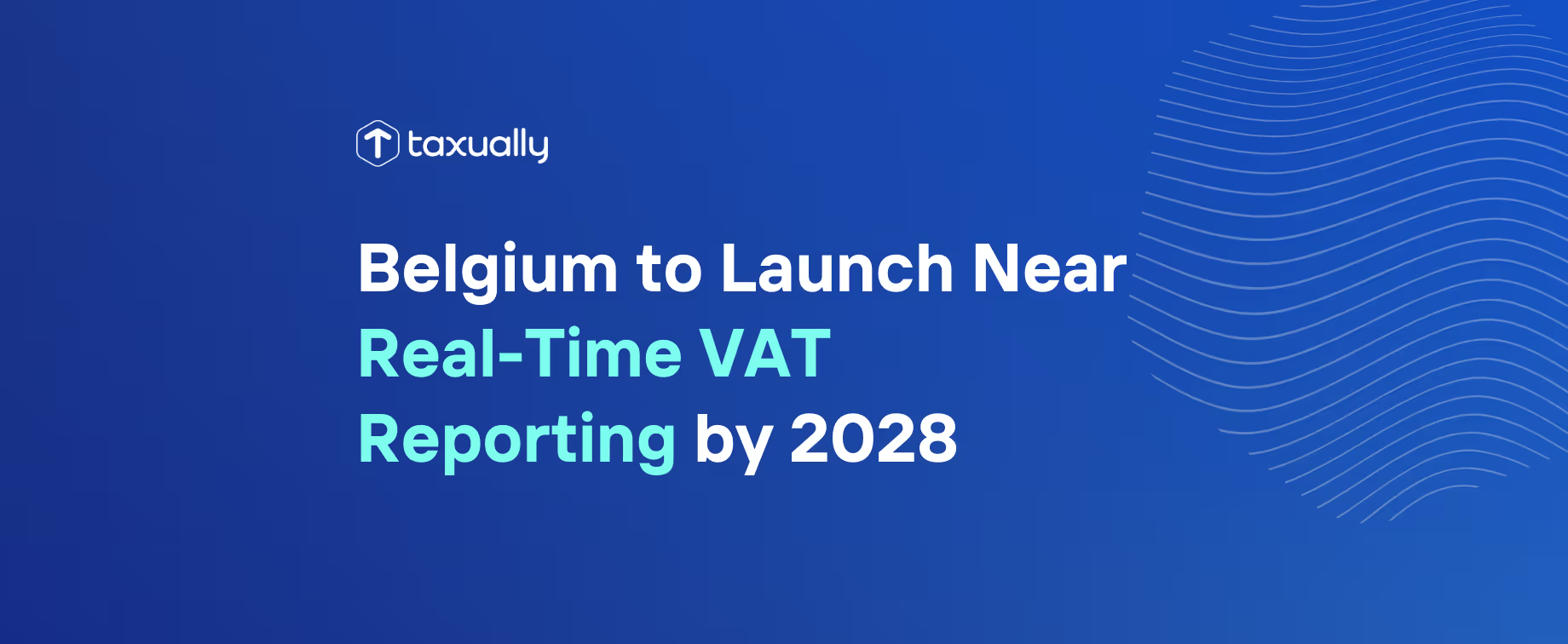Key takeaways
- Belgium will introduce near real-time VAT e-reporting on January 1, 2028, after mandatory B2B e-invoicing begins January 1, 2026.
- Businesses must use the Peppol framework for standardized e-invoicing and reporting.
- The change aligns Belgium with the EU’s VAT in the Digital Age (VIDA) initiative.
- The reform aims to reduce fraud, simplify compliance, and eliminate annual customer listings.
- Businesses should begin preparing IT systems and ERP integrations well before 2026.
Belgium is preparing for a significant shift in VAT compliance, with the introduction of near real-time VAT e-reporting set for January 1, 2028. This initiative is part of a broader digitalisation effort aimed at improving VAT transparency and reducing fraud.
The transition begins with a mandate for structured B2B e-invoicing, which will take effect on January 1, 2026. Businesses will be required to adopt the Peppol framework to issue and receive invoices in a standardised digital format. Two years later, on January 1, 2028, Belgium will implement near real-time e-reporting. This will require companies to automatically transmit invoice data to the Belgian tax authorities using a 5-corner Peppol model.

Background and purpose
The change was confirmed in the Federal Coalition Agreement 2025–2029, published on January 31, 2025. Building on the 2026 e-invoicing mandate, the new reporting system aims to streamline VAT processes, improve data accuracy, and enhance fraud detection.
The 2028 model will use a 5-corner Peppol structure to enable near-live transmission of invoice data. This will eliminate the need for Belgium’s existing annual customer listing and marks a move toward continuous transaction controls.
Alignment with EU Policy
These changes align with the European Commission’s VAT in the Digital Age (VIDA) initiative, which seeks to harmonise digital VAT reporting across Member States. Belgium’s adoption of near real-time reporting positions it as one of the frontrunners in implementing these reforms.
Implications for businesses
Companies operating in Belgium should begin preparing now. By 2026, they must implement structured e-invoicing systems based on Peppol. Ahead of 2028, it will also be necessary to ensure that invoicing and ERP platforms are capable of supporting near real-time data transmission.
In addition, Belgium plans to expand the fiscal cash register system to the entire hospitality sector and other high-risk industries. Businesses in these sectors should anticipate new compliance obligations and consider investing in automated reporting tools.
Do you need help with your VAT compliance? Book a free call with one of our VAT experts to find bespoke solutions for your business, optimize your VAT costs, and reach millions of new potential customers.
Frequently asked questions
New Year's Day - 1/1/2024Memorial Day - 5/27/20244th of July - 7/4/2024Labor Day - 9/2/2024Thanksgiving Day - 11/28/2024Day after Thanksgiving - 11/29/2024Christmas Eve - 12/24/2024Christmas Day - 12/25/2024
When will Belgium’s e-invoicing become mandatory?
From January 1, 2026, all B2B invoices must be issued and received via the Peppol network.
When does near real-time VAT reporting start?
On January 1, 2028, businesses will begin automatically transmitting invoice data to tax authorities.
What is the Peppol framework?
Peppol is a standardized digital infrastructure that enables secure e-invoice exchange between businesses and governments.
What does “near real-time reporting” mean?
Invoice data will be transmitted automatically and almost immediately after issuance, replacing annual or periodic reports.
Why is Belgium implementing these changes?
To modernize VAT reporting, improve fraud detection, and align with EU-wide digital tax initiatives.
Will this affect all sectors?
Yes, though the hospitality sector and other high-risk industries may see expanded cash register requirements.
What should businesses do now?
Start implementing compliant e-invoicing systems before 2026 to ensure smooth transition to real-time reporting.



















